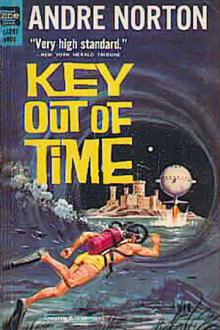Sanders of the River by Edgar Wallace (novels to read in english .TXT) 📗

- Author: Edgar Wallace
Book online «Sanders of the River by Edgar Wallace (novels to read in english .TXT) 📗». Author Edgar Wallace
Sanders watched patiently.
Then suddenly, from close at hand, from the very deck on which he stood, came an answering call.
Sanders had his little cabin on the bridge of the steamer; he walked farther away from it. In the corner of the bridge he crouched down, his thumb on the safety-catch.
He felt, rather than saw, a man come from the forest; he knew that there was one on board the steamer who met him.
Then creeping round the deck-house came two men. He could just discern the bulk of them as they moved forward till they found the door of the cabin and crept in. He heard a little noise, and grinned again, though he knew that their spear-heads were making sad havoc of his bedclothes.
Then there was a little pause, and he saw one come out by himself and look around.
He turned to speak softly to the man inside.
Sanders rose noiselessly.
The man in the doorway said "Kah!" in a gurgling voice and went down limply, because Sanders had kicked him scientifically in the stomach, which is a native's weak spot. The second man ran out, but fell with a crash over the Commissioner's extended leg, and, falling, received the full weight of a heavy pistol barrel in the neighbourhood of his right ear.
"Yoka!" called Sanders sharply, and there was a patter of feet aft, for your native is a light sleeper, "tie these men up. Get steam, for we will go away from here; it is not a nice place."
Sanders, as I have tried to explain, was a man who knew the native; he thought like a native, and there were moments when he acted not unlike a barbarian.
Clear of the danger, he tied up to a little island in mid-stream just as the dawn spread greyly, and hustled his two prisoners ashore.
"My men," said he, "you came to kill me in the dark hours."
"Lord, that is true," said one, "I came to kill, and this other man, who is my brother, told me when to come—yet it might have been another whom he called, for I am but one of many."
Sanders accepted the fact that a chain of cheerful assassins awaited his advent without any visible demonstration of annoyance.
"Now you will tell me," he said, "who gave the word for the killing, and why I must die."
The man he addressed, a tall, straight youth of the Amatombo people, wiped the sweat from his forehead with his manacled hands.
"Lord, though you chop me," he said, "I will not tell you, for I have a great ju-ju, and there are certain fetishes which would be displeased."
Sanders tried the other man with no greater success. This other was a labourer he had taken on at a village four days' journey down stream.
"Lord, if I die for my silence I will say nothing," he said.
"Very good," said Sanders, and nodded his head to Abiboo. "I shall stake you out," he added, "flat on the ground, your legs and arms outstretched, and I will light a little fire on your chests, and by and by you will tell me all I want to know."
Staked out they were, with fluffy little balls of dried creeper on each breast, and Sanders took a lighted stick from the fire his servants had built.
The men on the ground watched his every movement. They saw him blow the red stick to a flame and advance toward them, then one said—
"Lord, I will speak."
"So I thought," said Sanders; "and speak truth, or I will make you uncomfortable."
If you ask me whether Sanders would have employed his lighted stick, I answer truthfully that I think it possible; perhaps Sanders knew his men better than I know Sanders.
The two men, released from their unhappy position, talked frankly, and Sanders was a busy man taking notes in English of the conversation which was mainly in Bomongo.
When his interrogation was completed, Sanders gathered up his notes and had the men taken on board the steamer. Two hours later the Zaire was moving at its fullest speed in the direction of a village of the Akasava, which is called in the native tongue Tukalala.
There was a missionary to Tukalala, a devoted young American Methodist, who had elected to live in the fever belt amongst heathen men that he might bring their hearts to the knowledge of God.
Sanders had no special regard for missionaries; indeed, he had views on the brotherhood which did him no particular credit, but he had an affection for the young man who laboured so cheerfully with such unpromising material, and now he paced the little bridge of his steamer impatiently, for it was very necessary that he should reach Tukalala before certain things happened.
He came round a bend of the little river just as the sun was going down behind the trees on the western bank, and the white beach before the mission station showed clearly.
He motioned with two fingers to the man at the wheel, and the little steamer swung almost broadside to the swift stream and headed for the bank, and the black water of the river humped up against his port bow as though it were a sluice gate.
Into the beach he steamed; "pucka-pucka-pucka-puck," sang the stern wheel noisily.
Where the missionary's house had stood was a chaos of blackened debris, and out of it rose lazy little wisps of smoke.
He found the missionary dressed in white duck, greatly soiled, lying face downwards, and he found some difficulty in raising him, because he was pinned to the ground with a broad-bladed elephant spear which had been broken off flush with his shoulders.
Sanders turned him on his back, closed the patient's eyes, staring, it seemed, hungrily at the darkening sky as though at the last questioning God's wisdom.
The Commissioner took a gaudy bandana handkerchief from his pocket, and laid it on the dead man's face.
"Abiboo," he said softly to his sergeant, "dig me a great hole by that copal gum, for this man was a great chief amongst his people, and had communion with gods."
"He was a Christ man," said Abiboo sagely, who was a devout follower of the Prophet, "and in the Sura of Mary it is written:
"'The sects have fallen to variance about Jesus, but woe, because of the assembly of a great day to those who believe not!'"
Abiboo bore the title of Haj because he had been to Mecca and knew the Koran better than most Christians know the Bible.
Sanders said nothing. He took a cigar from his pocket and lit it, casting his eyes around.
No building stood. Where the mission station with its trim garden had been, was desolation. He saw scraps of cloth in the fading light. These were other victims, he knew.
In the mellow light of the moon he buried the missionary, saying the Lord's Prayer over him, and reciting as much of the Burial Service as he could remember.
Then he went back to the Zaire and set a guard. In the morning Sanders turned the nose of the Zaire down stream, and at sunset came to the big river—he had been sailing a tributary—and where the two rivers meet is the city of the Akasava.
They brought the paramount chief of all the people to him, and there was a palaver on the little bridge with a lantern placed on the deck and one limp candle therein to give light to the assembly.
"Chief," said Sanders, "there is a dead white man in your territory, and I will have the hearts of the men who killed him, or by The Death I will have your head."
He said this evenly, without passion, yet he swore by Ewa, which means death and is a most tremendous oath. The chief, squatting on the deck, fidgeting with his hands, shivered.
"Lord," he said, in a cracked voice, "this is a business of which I know nothing; this thing has happened in my territory, but so far from my hand that I can neither punish nor reward."
Sanders was silent save for an unsympathetic sniff.
"Also, master," said the chief, "if the truth be told, this palaver is not of the Akasava alone, for all along the big river men are rebellious, obeying a new ju-ju more mighty than any other."
"I know little of ju-jus," said Sanders shortly, "only I know that a white man has died and his spirit walks abroad and will not rest until I have slain men. Whether it be you or another I do not care—the palaver is finished."
The chief rose awkwardly, brought up his hand in salute, and went shuffling down the sloping plank to land.
As for Sanders, he sat thinking, smoking one cigar after another. He sat long into the night. Once he called his servant to replace the candle in the lantern and bring him a cushion for his head. He sat there until the buzzing little village hushed to sleep, until there was no sound but the whispering of bat wings as they came and went from the middle island—for bats love islands, especially the big vampire bats.
At two o'clock in the morning he looked at his watch, picked up the lantern, and walked aft.
He picked a way over sleeping men until he came to that part of the deck where a Houssa squatted with loaded carbine watching the two prisoners.
He stirred them gently with his foot, and they sat up blinking at his light.
"You must tell me some more," he said. "How came this bad ju-ju to your land?"
The man he addressed looked up at him.
"Lord, how comes rain or wind?" he said. "It was a sudden thought amongst the people. There were certain rites and certain dances, and we chopped a man; then we all painted our faces with camwood, and the maidens said 'Kill!'"
Sanders could be very patient.
"I am as your father and your mother," he said. "I carry you in my arms; when the waters came up and destroyed your gardens I came with manioc and salt and saved you; when the sickness came I brought white men who scraped your arms and put magic in your blood; I have made peace, and your wives are safe from M'Gombi and Isisi folk, yet you are for killing me."
The other nodded.
"That is true talk, master—but such is the way of ju-jus. They are very High Things, and do not remember."
Sanders was worried; this matter was out of his reach. "What said the ju-ju?"
"Lord, it said very clearly, speaking through the mouth of an old man, M'fabaka of Begeli——"
"M'fabaka of Begeli?" repeated Sanders softly, and noted the name for a speedy hanging.
"This old man saw a vision, and in this vision, which he saw with great pain and foaming at the mouth and hot eyeballs, he saw white men slain by black men and their houses burnt."
"When was this?"
"When the moon was full"—six days ago, thought Sanders—"and he saw a great king with many legions marching through the land making all white men fear him."
He went on to give, as only a native memory can recall, the minutest detail of the king's march; how he slew white men and women and put their house to flames; how his legions went dancing before him.
"And all this happened at the full of the moon," he finished; "therefore we, too, went out to slay, and, knowing that your Highness would be coming as is your custom to give judgment at this season of the year, it was thought wise to kill you, also the Christ-man."
He told all this in a matter-of-fact tone, and Sanders knew that he spoke the truth.
Another man would have been more affected by that portion of the narrative which touched him most nearly, but it was the king ("a great man, very large about the middle"), and his devastating legions who occupied the Commissioner's thoughts.
There was truth behind this, he did not doubt that. There was a rising somewhere that he had not heard of; very quickly he passed in mental review the kings of the adjoining territories and of his own lands.
Bosambo of Monrovia, that usurper of the Ochori chieftainship, sent him from time to time news of the outlying peoples. There was no war, north or south or east.
"I will see this old man M'fabaka of Begeli," he said.
Begeli is a village that lies on an in-running arm of the river, so narrow that it seems like a little river, so still that it is apparently a lake. Forests of huge trees slope down on either bank, and the trees are laced one to the other with great snake-like tendrils, and skirted at foot with rank undergrowth. The Zaire came cautiously down this stretch of calm water, two Maxim guns significantly displayed at the bridge.
A tiny little steamer this Zaire.





Comments (0)